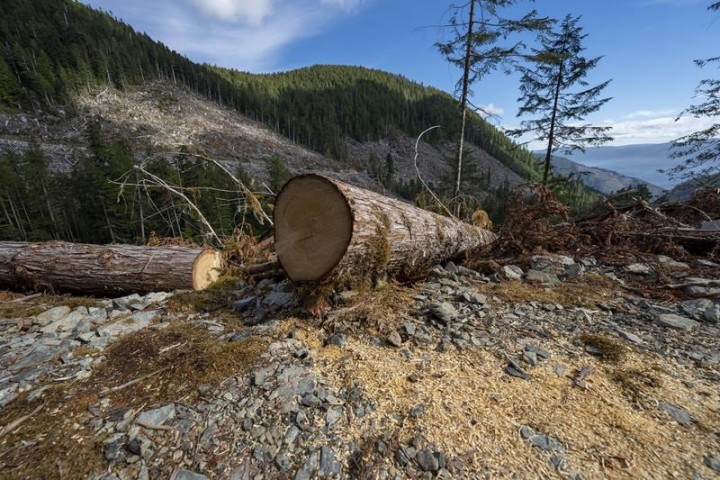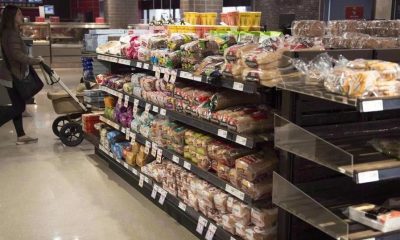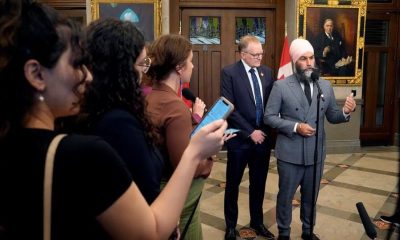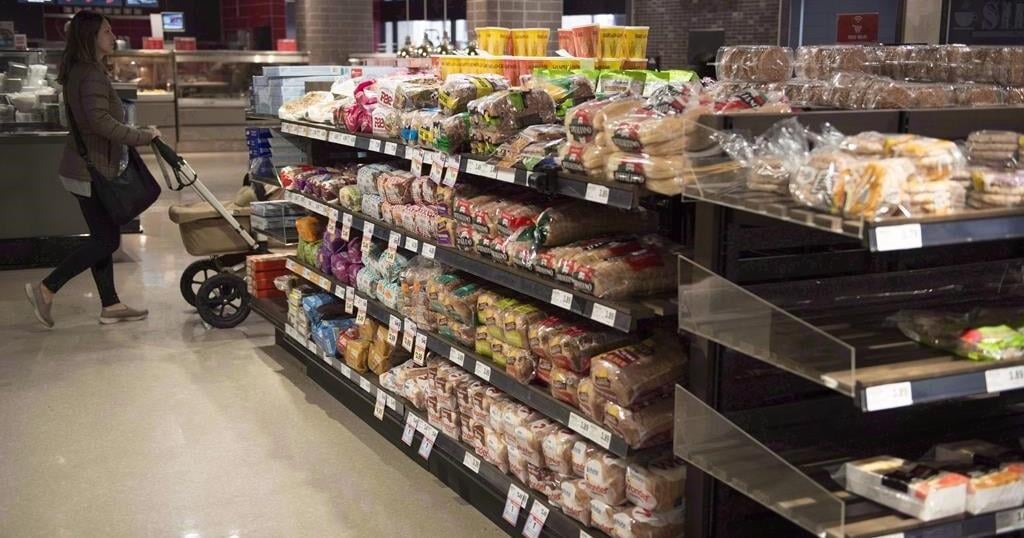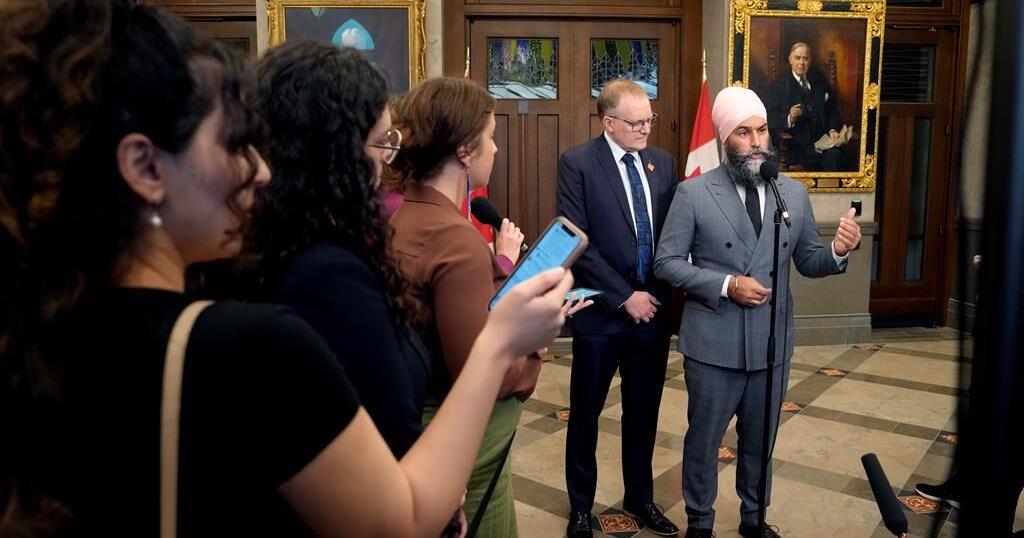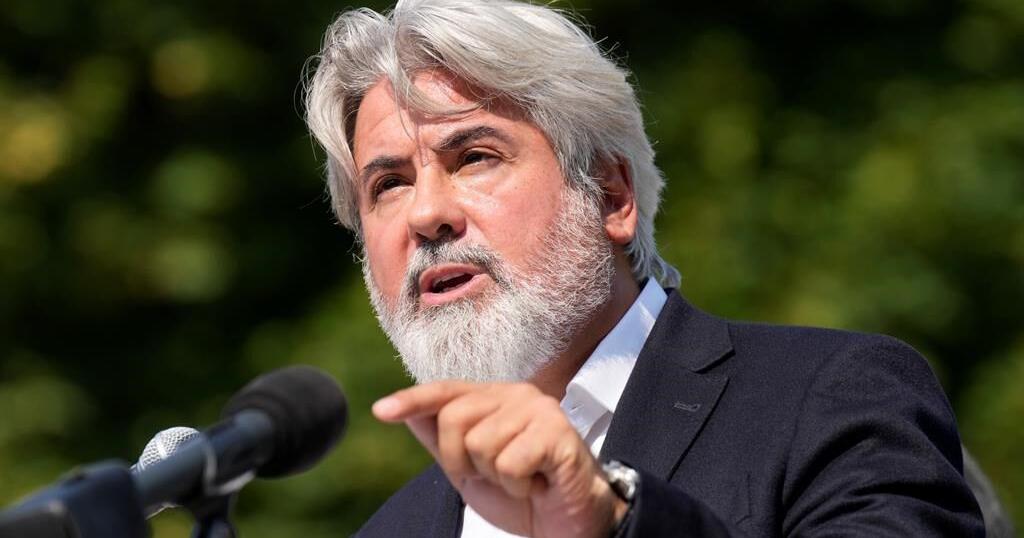An analysis suggests Canada is using questionable methods to dramatically underestimate greenhouse gas emissions from the forestry industry, which it says equal those from Alberta’s oilsands in some years.
“Canada is taking credit for carbon removal from vast forests that have never been logged as a way of masking emissions,” said Michael Polanyi of Nature Canada, which co-sponsored the report.
The report released Tuesday, also sponsored by the Natural Resources Defense Council, uses federal data and methodology to attempt to find out how much carbon is emitted by Canada’s forestry sector.
Environment Canada reports direct emissions for almost all sectors of the economy. But logging is handled through a figure called “combined net flux,” combining natural processes and industrial activity.
Federal government figures suggest carbon emissions from harvesting the so-called “managed forest” — any forest under a forestry dispensation, whether or not it’s being logged — are almost evenly balanced overall by carbon absorption from forest regrowth.
Natural Resources Canada has long defended its approach, saying it conforms with United Nations guidelines and is used by other countries.
But the report says the government’s calculations are misleading.
The government doesn’t attribute carbon released by wildfires to industry. However, it does credit industry for carbon absorbed by forest regrowth, even if that forest has never been harvested and human activities play no part in its recovery.
“It’s like a dieter taking credit for food they don’t eat,” said Jennifer Skene of the Natural Resources Defense Council.
The authors tried to factor out the impact of wildfires. They attempted to isolate emissions directly attributable to industry using government data, methods and assumptions.
They calculated the total amount of carbon stored in harvested trees. From that, they subtracted carbon that will remain held in long-lived products, such as building supplies. They also subtracted carbon absorbed by trees as they regrow on replanted forest blocks.
The result? Instead of roughly even-steven, the report concludes that since 2010, forestry has released an average of about 85 megatonnes of carbon every year. Alberta government figures say the oilsands emit about 70 megatonnes a year from production.
Federal government documents defend how it calculates emissions. They say excluding wildfires from emissions coming from managed forests allows scientists to isolate emissions from human activity.
“Canada’s (greenhouse gas) inventories separate forest emissions and removals in the managed forest due to human activities from emissions and removals due to wildland fire, forest insect outbreaks and other natural disturbances,” says a document posted in June.
“If such an approach was not used, it would be impossible to assess how forest management activities affect estimates. This is because natural disturbances would dominate emissions and removals estimates.”
Carbon emissions from wildfires are calculated and have revealed that Canada’s forests are now a source of carbon rather than a sink. However, those emissions are not attributed to industry.
“The government doesn’t include or count wildfires, but then takes credit for regrowth after those wildfires have taken place,” Polanyi said.
Polanyi said the report’s calculations are conservative. They don’t address carbon released from trees cut for forestry roads, carbon released from unharvested forest soils after they’re cut or failed regrowth.
“The vast majority of logging in Canada is taking place in previously unlogged forest,” he said.
The difference matters, because Canada can’t meet its climate change goals unless it has an accurate picture of where it’s starting from, he said.
“People generally accept accurate reporting of emissions is critical,” said Polanyi.
Polanyi said the report’s conclusions bolster the argument that emissions from forestry should be regulated the same way as those from other industries.
“The government should put in place a strategy for reducing emissions from this sector. Those emissions should be regulated or included in the output-based pricing system just as other industries are included.”
This report by The Canadian Press was first published Oct. 18, 2022.
— Follow Bob Weber on Twitter at @row1960
Bob Weber, The Canadian Press
Related

